Renowned for his exceptional skills on the cricket pitch, Nanik Amarnath Bhardwaj, affectionately known as Lala Amarnath, etched his name in history as the pioneer Indian cricketer to achieve a Test century. His remarkable feat took place during his debut Test match, making it all the more remarkable.
Additionally, he held the honor of being independent India's inaugural cricket captain and proudly fathered two former Indian cricket stars, namely Surinder and Mohinder Amarnath.
| Category | Details |
|---|---|
| FULL NAME | Nanik Amarnath Bharadwaj |
| BIRTH | Born on September 11, 1911, in Kapurthala, Punjab |
| DEATH | Passed away on August 05, 2000, in New Delhi, at the age of 88 years and 329 days |
| BATTING STYLE | Right-handed Bat |
| BOWLING STYLE | Right-arm Medium |
| FIELDING POSITION | Wicketkeeper |
Who is Lala Amarnath?
Lala Amarnath, a cricketing luminary in India's history, etched his name in the annals of the sport by scoring India's inaugural Test century. He helped Indian cricket as a selector, manager, coach, and broadcaster in addition to being a great batter and bowler.
His impact went beyond the field of play since he had three kids, two of whom played Test cricket for India. All three pursued first-class cricket.
Remembering the legendary Lala Amarnath ji on his birth anniversary. ?
— BCCI (@BCCI) September 11, 2023
He was India's first-ever Test centurion and the first Indian captain to lead #TeamIndia to a Test series win. pic.twitter.com/pPt0dPoaNw
Amarnath, hailing from Punjab, boldly challenged the prevailing dominance of Indian cricket by local royalty and their imperial patrons. Regrettably, this principled stance had detrimental consequences on his career. While his statistics in 24 Test matches may not appear extraordinary, they fail to do justice to his sporadic brilliance and long-lasting impact.
Cricket Journey
Amarnath's journey began in humble origins in Lahore, then part of India, where he garnered attention with a remarkable innings of 109 for Southern Punjab against MCC in 1933-34. Shortly after, he became a sensation by scoring a century in his Test debut during India's first Test match at home, held at the genteel Gymkhana ground in Bombay. In the face of an impending innings defeat, he took on the English bowling attack with unwavering confidence, describing his performance as if he were possessed by an inexplicable force.
His aggressive style resulted in an 83 off just 78 minutes, where he confidently hooked deliveries from Nichols and Clark and even took on Hedley Verity. Slightly slowing down, he reached his century in a mere 117 minutes. This remarkable achievement was celebrated with overwhelming support from fans, including garlands and congratulatory messages, and even the Maharajahs contributed with monetary gifts. India hailed him as a hero, momentarily overshadowing England's victory.
Although he made limited contributions in the remaining matches of the series, Amarnath emerged as the standout performer, excelling with both bat and ball during India's challenging tour of England in 1936, led by the Maharaj Kumar of Vizianagram. His disagreement with the captain, arising from being demoted in the batting order, led to his sensational expulsion from the team. Subsequent events, including the team's struggles and an inquiry commission, vindicated his stance, but this period marked a 12-year hiatus between his third and fourth Test appearances.
Nonetheless, Amarnath remained a significant force in Indian cricket, exemplified by his innings of 241 for Hindus against The Rest in 1938-39. When he revisited England with the 1946 Indian team, now rehabilitated, his bowling skills overshadowed his batting prowess, particularly in the first post-war Test at Lord's, where he dismissed Hutton, Washbrook, Compton, and Hammond, reducing England to 70 for four. His unique off-the-wrong-foot bowling style, impeccable length, and ability to swing the ball made him stand out.
In 1947, he assumed the captaincy for India's first tour of Australia, yet they faced a formidable opponent in Bradman, resulting in a lopsided series. Amarnath struggled personally, with a batting average of just 14, but he shone against state sides, with his highlight being a splendid 228 against Victoria.
Controversy
Amarnath's captaincy continued against West Indies in 1948-49, where he came close to leading India to their first Test victory in Bombay but fell short. However, disputes regarding financial matters and disparities in treatment between the visiting and Indian players, orchestrated by powerful board secretary Anthony De Mello, led to Amarnath's suspension for "continuous misbehavior and breach of discipline."
Finding solace in the Lancashire League, he garnered support from none other than Bradman, who hailed him as an outstanding ambassador. With De Mello's fall from power, Amarnath was reinstated, although in a reduced capacity, in 1951-52. He played a pivotal role in India's maiden Test victory against England in Madras. However, he was overlooked for the 1952 tour of England. Surprisingly, he was reinstated as captain for the 1952-53 series against Pakistan, largely due to Vizzy's insistence. Despite India winning the series, Amarnath's personal contributions were minor, and internal politics led to his resignation in frustration.
Records
Nevertheless, Amarnath's stature continued to grow in Indian cricket. He assumed the role of chairman of selectors, most notably advocating for the inclusion of off-spinner Jasu Patel in 1959-60, a decision that led to a historic victory over Australia. Additionally, he mentored his sons, with Surinder making a century on his debut and Mohinder ("Jimmy") playing 69 Tests. Beyond his administrative roles, he became a beloved commentator, known for his insightful and humorous commentary. In his later years, he earned widespread affection as the source of cricket anecdotes in India.
Amarnath never lost his predilection for voicing his opinion, which was characterized by his impulsive disposition. The Indian Prime Minister, A. B. Vajpayee, rightly referred to him as an icon, recognizing his enduring influence on Indian cricket.
Player Statistics
Batting & Fielding
| FORMAT | Mat | Inns | NO | Runs | HS | Ave | 100s | 50s | 6s | Ct | St |
|---|---|---|---|---|---|---|---|---|---|---|---|
| Test | 24 | 40 | 4 | 878 | 118 | 24.38 | 1 | 4 | 0 | 13 | 0 |
| FC | 186 | 286 | 34 | 10426 | 262 | 41.37 | 31 | 39 | - | 96 | 2 |
Bowling
| FORMAT | Mat | Inns | Balls | Runs | Wkts | BBI | BBM | Ave | Econ | SR | 4w | 5w | 10w |
|---|---|---|---|---|---|---|---|---|---|---|---|---|---|
| Test | 24 | 35 | 4241 | 1481 | 45 | 5/96 | 8/167 | 32.91 | 2.09 | 94.2 | 3 | 2 | 0 |
| FC | 186 | - | 29474 | 10644 | 463 | 7/27 | - | 22.98 | 2.16 | 63.6 | - | 19 | 3 |
The BCCI decided to create an award in his honour for the best all-rounder in a Ranji Trophy and the best all-rounder in limited-over domestic tournament in 2011.
Also Read: Who Has The Fastest Century In ICC ODI World Cup History?


Disclaimer
Possible11 is a sports news and analysis platform designed purely for entertainment and educational purposes. All match previews, player insights, and team analyses are based on publicly available information and expert opinions. We do not promote or support betting, gambling, or real-money gaming in any form. Users are encouraged to enjoy our content responsibly and use it for informational purposes only.











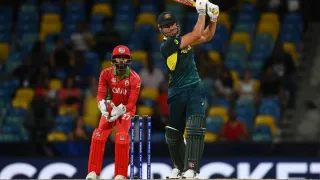
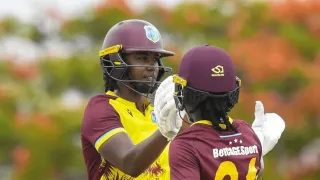


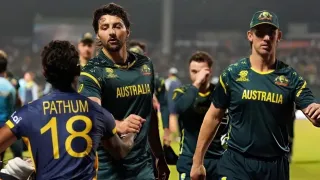
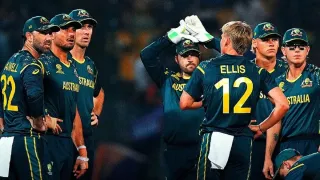
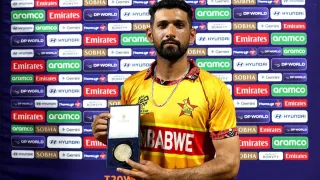
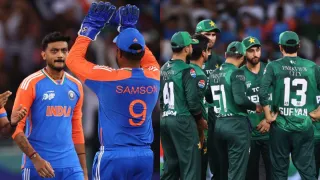

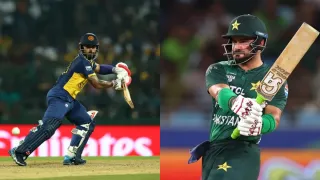
Give Your Feedback